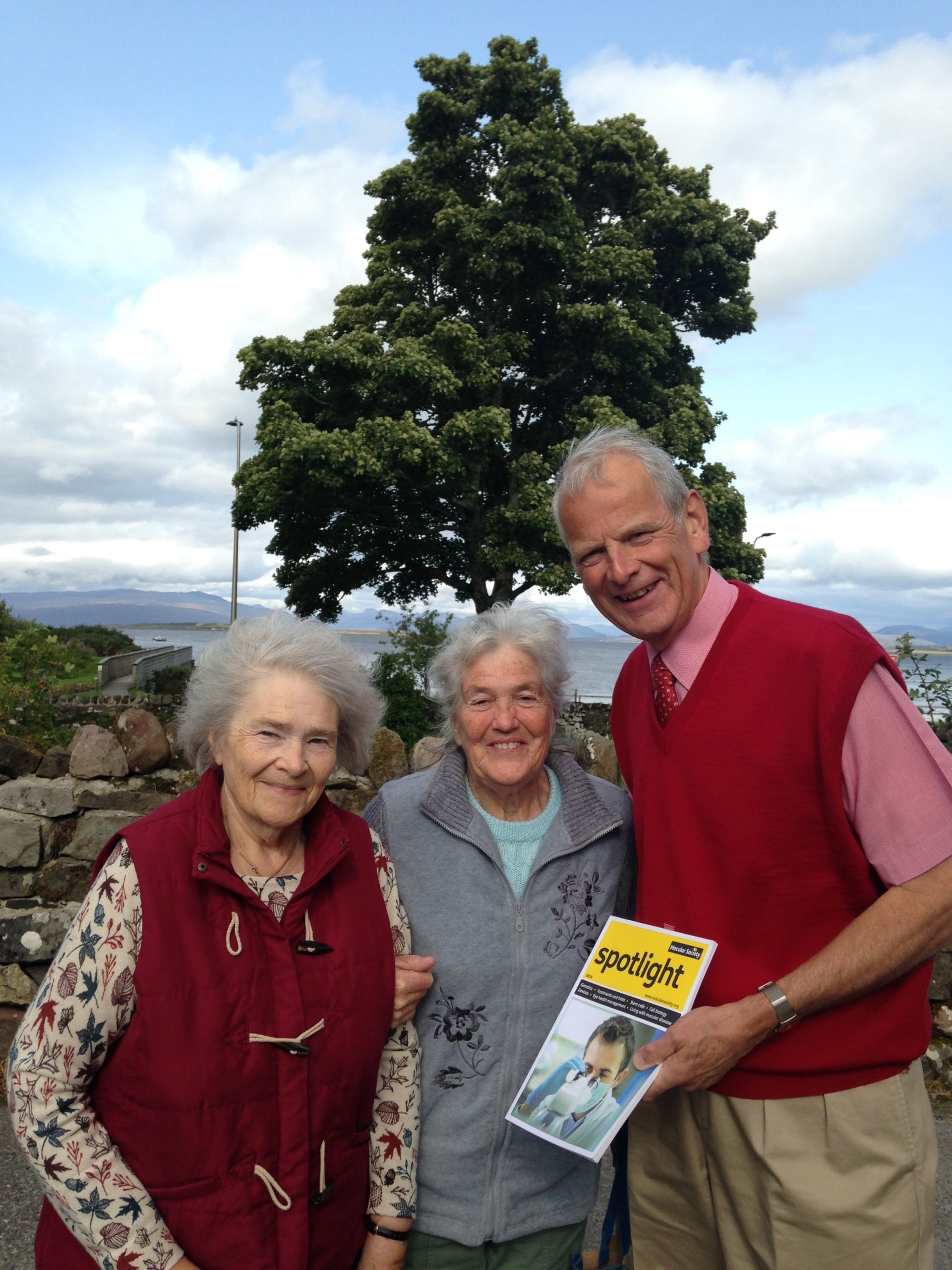Project Title: Filling gaps in macular services in Scotland
In Scotland, more than 54,000 people live with age-related macular degeneration, the main cause of sight loss in the UK. The disease can have a devastating effect on people’s lives, leaving them unable to drive, read or see faces. It takes away their independence, and they can become socially isolated and vulnerable.
The RS Macdonald Charitable Trust has invested in a grant for the Macular Society to establish a network of support groups across the more remote parts of Scotland. The groups are led by volunteers and help people further understand their condition, come to terms with sight loss, share information and ultimately stay independent for longer. The funding supports regional managers who help set up and manage the groups, working closely with a wide range of Scotland-based sight loss organisations and healthcare professionals, helping to ensure as many people as possible affected by macular disease in Scotland have access to the advice and support they need.
This project provides hundreds of people from across Scotland with an opportunity to increase their community engagement, meeting others and gaining strength from others who understand what it is like to live with sight loss. In turn, this reduces isolation for those affected by visual impairment, improving mental well-being and helping find practical ways to living independently despite the challenges of sight loss.
The underlying principles underpinning the success of this project is peer support and partnerships. The work has established links with many other local groups for the visually impaired, where appropriate. We have seen strong impact of working alongside, for example, ECLOs in Inverness and Ninewells Hospitals, and have helped secure direct healthcare in Lerwick to save patients having to travel by ferry to Aberdeen to receive treatment for wet AMD.
The group works well as everyone has a different problem with their sight, they’re at different degrees. You just learn from everybody else, some people have bigger problems than others. And maybe it helps people who don’t have a massive problem just now, but they might have in 3 or 4 years’ time.
It’s building those connections back. Knowing that other folk who you might know already, or have known at some point in time, are in a similar boat.
I think you’ve got to accept what you’ve got and make the most of it. You can’t go back. The group has helped me accept it.

